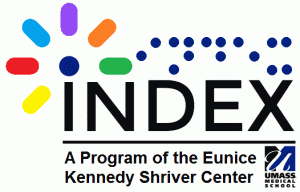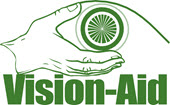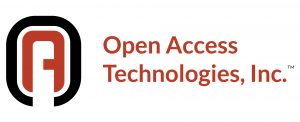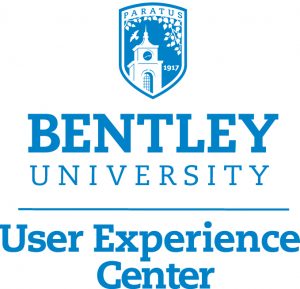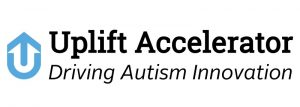Session Descriptions (2012)
Opening Remarks
Keynote. Derek Featherstone, Simply Accessible.
Accessibility as Innovation: Life on Mars. Elle Waters and Derek Featherstone.
Just as space exploration can drive innovation in scientific study, accessibility can be used as a powerful tool to create better design patterns for the Web. Inclusive design and responsive web design as complimentary concepts can inspire your UX team and empower the end-user. Elle and Derek will discuss the paradigm shift from compliance to cutting-edge at Humana, and they will demonstrate these principles using three examples from not-yet-published solutions for an upcoming enterprise redesign.
Audience Level: All
Accessibility for Silver Users. Eleanor Robinson.
Come learn about what “silver users” need to make their experiences better. This session will discuss the accessibility features and will cover the magnitude of the problem and how paying attention to their needs can help make web access, software, and mobile technologies better for all users.
An Introduction to Web Accessibility. Mark Sadecki.
This session presents an introduction to Web Accessibility, demonstrating practical examples and techniques that developers and content producers can use to make their websites more accessible. It includes an emphasis on why and how screen readers and other assistive technology interact and use the code that makes up the web. This session includes demonstrations of screen reading and magnification software and the experience of using them on popular websites. This session is appropriate for anyone who puts content or code on the web.
Audience Level: All
How to Build an Accessible Application. Dennis Lembree.
(Remote Skype session.) Dennis will explain how to use coding and design techniques to create an accessible website or web application.
Audience Level: Intermediate
Inclusive Games: How Developers Can Take Accessibility to New Heights. Johnny Richardson.
Gaming as an entertainment medium and culturally vital art form has seen a vast increase in the diversity of players in recent years. However, many gamers with special needs can have a difficult time finding pathways to enjoying it. In this session, I will discuss how AbleGamers and like forces are promoting and teaching ways of easily developing highly accessible gaming software, whereby disabled gamers have brand new outlets for everything from esteem-building escapism to social experiences. Furthermore, I will detail the methodologies that many developers are already using to do this, share their stories, and explain how and why they can do even better – opening their products to a major untapped market.
Quick Start to Captioning. Tole Khesin and CJ Johnson.
This session will cover the basics of captioning for accessible online video, including accessibility laws, best practices for creating captions, and the impact of HTML5 and emerging standards. We will also demonstrate the latest web technologies that take captioning to a whole new level.
Replacing the Computer Mouse. Franck Dernoncourt.
In a few months, the computer mouse will be half-a-century-old. It is known to have many drawbacks, the main ones being: loss of productivity due to constant switching between keyboard and mouse, health issues such as RSI, medical impossibility to use the mouse (broken or amputated arm), and unnatural human-computer interface like the keyboard. However, almost everybody still uses a computer mouse nowadays.
In this presentation, we explore computer mouse alternatives. Our review shows that moving the mouse cursor can be done efficiently with the SmartNav device and mouse clicks can be emulated in many complementary ways. We believe that computer users can increase their productivity and their health by using those alternatives. Note that there are a few exceptions such as advanced users of graphics editing programs or FPS gamers, who will still be more efficient using a computer mouse.
Audience Level: Need to Learn
Understanding Resistance to Change: Web Accessibility in the Organization. Denis Boudreau.
Web accessibility calls for profound change management and cultural shifts. While organizations are beginning to adopt policies to abide by W3C accessibility guidelines, most people within these organizations tend to view the changes accessibility policies bring as something very threatening. Unbalancing the ecosystem of an organization inevitably brings resistance. For changes to be willfully accepted, people have to understand what it is they need to do and why it is they’re being asked to do it. Helping people view change as an opportunity rather than a threat is fundamental in turning them into allies. This session will cover organizational change basic principles and will show how they apply to Web accessibility.
Audience Level: All
Using AccessGrade.com to Predict Web Accessibility. Sina Bahram.
Some websites aren’t accessible to screen readers for a variety of reasons: images aren’t labeled, forms are hard to use, tables are used for layout instead of tabular data, and so on. AccessGrade is using an algorithm to help it learn how to recognize which sites are accessible and which aren’t. Sina, one of the two primary researchers for the project, will talk about how AccessGrade works and how you can use it.
Audience Level: All
What Can Be Tested and How: An Analysis of the Coverage Provided by Automated Testing Tools. Karl Groves.
Automated Testing Tools offer the lowest cost-per-defect in finding and tracking accessibility issues on websites and web-based applications. Their efficiency cannot be replaced by human effort. This session offers the results of an investigation into what automated testing tools can and cannot find, including an analysis of which WCAG Success Criterion can and cannot be tested automatically.
Audience Level: All

